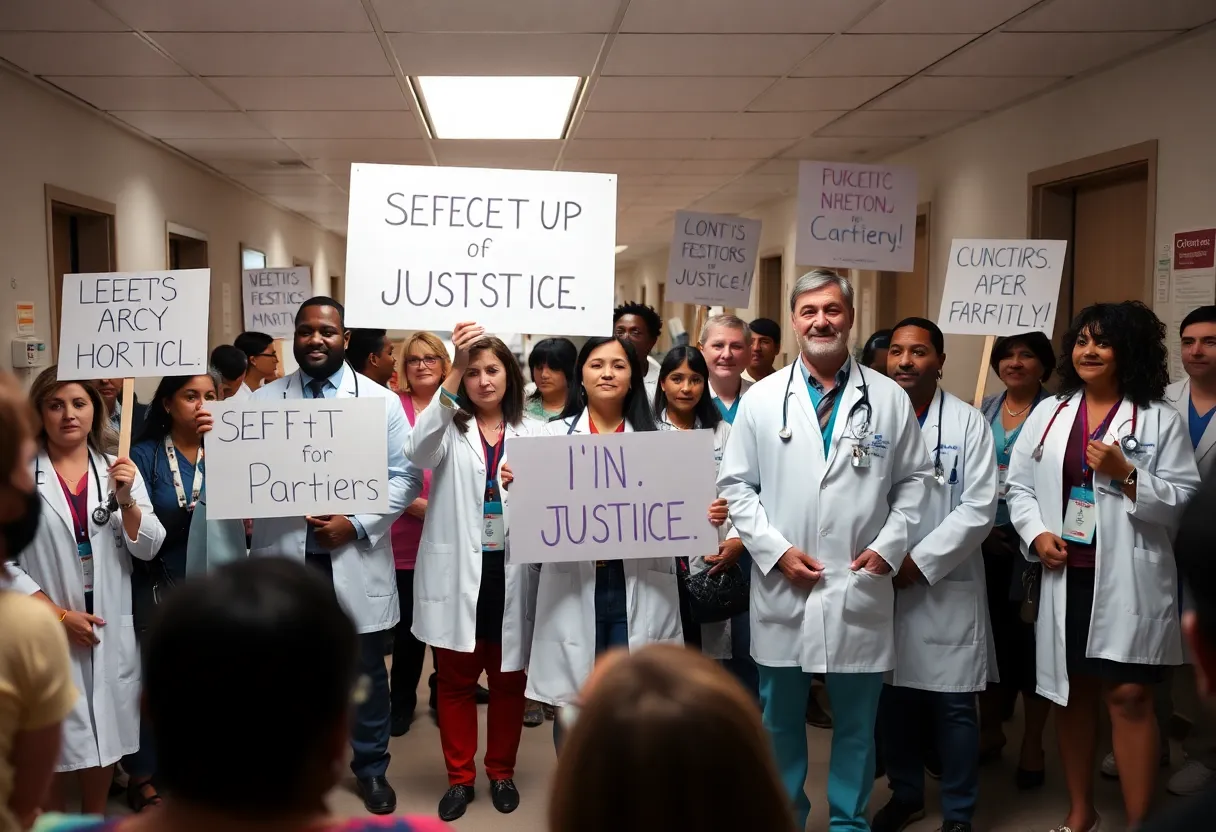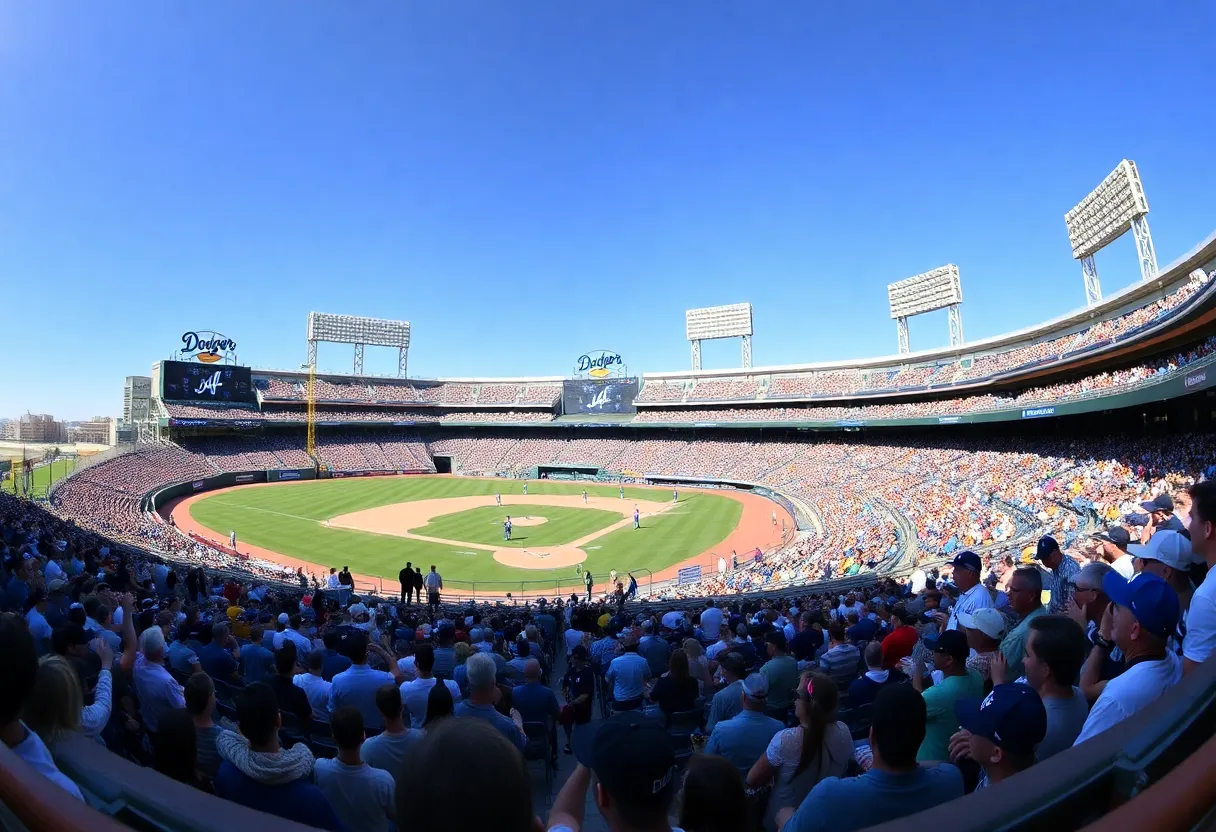News Summary
Over 2,500 resident doctors in Mumbai have initiated an indefinite work suspension to demand justice and improved safety measures following a tragic assault on a trainee doctor in Kolkata. Organized by BMC-MARD, they seek an investigation and the establishment of a Central Protection Act. The protests highlight alarming working conditions, including excessive hours and inadequate security that female doctors face. This crisis has raised concerns about mental health and the systemic issues within India’s healthcare system, emphasizing the urgent need for reform and protections for healthcare workers.
Mumbai – In a dramatic response to rising safety concerns, over 2,500 resident doctors from civic and state-run hospitals in Mumbai commenced an indefinite work suspension. This action was prompted by the tragic incident in Kolkata where a postgraduate trainee at RG Kar Medical College and Hospital was sexually assaulted and murdered after a grueling 36-hour shift on August 9. The protest is organized by the Brihanmumbai Municipal Corporation-Maharashtra Association of Resident Doctors (BMC-MARD) under the slogans ‘Her Pain, Our Voice’ and ‘Justice Delayed is Justice Denied.’
In their demands for justice and safety, resident doctors are calling for a central agency to investigate the Kolkata case and the establishment of a Central Protection Act aimed at safeguarding healthcare workers. They have also sought an urgent audit of security measures in medical institutions, with a representative from MARD present to oversee the process. A thorough review of hospital surveillance systems has been requested to ensure adequate monitoring is maintained.
Female resident doctors have voiced significant concerns regarding their safety, particularly in relation to the long working hours and inadequate security measures in their workplaces. Throughout the protests, senior resident doctors continued to provide urgent care in hospitals, ensuring that emergency services remained operational. However, elective surgeries were curtailed, with only emergency surgeries being carried out amid the ongoing work suspension.
The Maharashtra government had previously implemented a stipend increase for senior resident doctors to Rs 95,000 per month. However, many residents are still receiving between Rs 64,000 and Rs 66,000 due to non-compliance by some institutions. It is reported that over half of their salaries are spent on rent, leading to significant distress regarding their financial well-being and ability to support their families.
Additionally, public interest litigation (PIL) has been filed by the United Doctors Front (UDF) in the Supreme Court, citing significant non-compliance with 1992 guidelines that cap duty hours for resident doctors. According to the 1992 Uniform Residency Scheme, medical trainees are restricted to a maximum of 12 continuous hours of duty per day and 48 work hours per week. However, many postgraduate residents reportedly log between 70 and 100 hours per week.
Reports suggest a severe culture of extended working hours within the medical establishment, perpetuated by senior faculty members who justify long hours citing their own experiences. In a distressing context, between 2018 and 2022, 122 medical students reportedly died by suicide, and over 1,100 postgraduate students dropped out of their programs, indicating a significant crisis related to mental health and working conditions.
The National Medical Council (NMC) has faced criticism for failing to enforce these regulations effectively. Reports indicate systemic issues within the healthcare system as warnings about the dangers of excessive duty hours tend to be overlooked, despite the resulting tragic outcomes. An online survey assessing working conditions for MBBS interns and PG residents corroborated these issues, revealing alarming rates of suicides and dropouts among medical students.
Amidst the protests, resident doctors are also advocating for the establishment of a grievance redressal cell to address issues of caste discrimination and other challenges faced by marginalized communities within the healthcare system. This comes at a time when the Maharashtra government has recently cancelled over 500 Medical Officer appointments due to individuals failing to join within an established timeframe following a lengthy recruitment process.
This series of events illustrates the ongoing crisis and challenges faced by resident doctors in India, underscored by their demands for justice, improved working conditions, and systemic reforms aimed at safeguarding the rights and safety of healthcare workers.
Deeper Dive: News & Info About This Topic
HERE Resources
Additional Resources
- Edex Live: Mumbai’s Senior Resident Doctors Say They’re Underpaid
- Wikipedia: Healthcare in India
- Financial Express: Who is Dr. Omkar Kavitake?
- Google Search: Resident Doctors Protests Mumbai
- Hindustan Times: 2500 Resident Doctors Strike Work
- Google Scholar: Resident Doctors Work Conditions India
- Indian Express: Maharashtra Cancels 500 Doctor Appointments
- Encyclopedia Britannica: Resident Doctors Rights
Author: STAFF HERE LOS ANGELES WRITER
The LOS ANGELES STAFF WRITER represents the experienced team at HERELosAngeles.com, your go-to source for actionable local news and information in Los Angeles, Los Angeles County, and beyond, specializing in "news you can use" with coverage of product reviews for personal and business needs, local business directories, politics, real estate trends, neighborhood insights, and state news affecting the area—with deep expertise from years of dedicated reporting and strong community input, including local press releases and business updates, while delivering top reporting on high-value events like the Academy Awards, LA Auto Show, and Los Angeles Marathon, extending coverage to key organizations such as the Los Angeles Area Chamber of Commerce and the Los Angeles Tourism & Convention Board, plus leading businesses in entertainment and technology like Warner Bros. and SpaceX, and as part of the broader HERE network including HEREAnaheim.com , HERECostaMesa.com , HEREHuntingtonBeach.com , and HERESantaAna.com , providing comprehensive, credible insights into Southern California's dynamic landscape. HERE Anaheim HERE Beverly Hills HERE Coronado HERE Costa Mesa HERE Hollywood HERE Huntington Beach HERE Long Beach HERE Los Angeles HERE Mission Viejo HERE San Diego HERE Santa Ana





